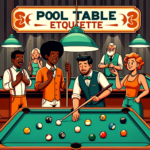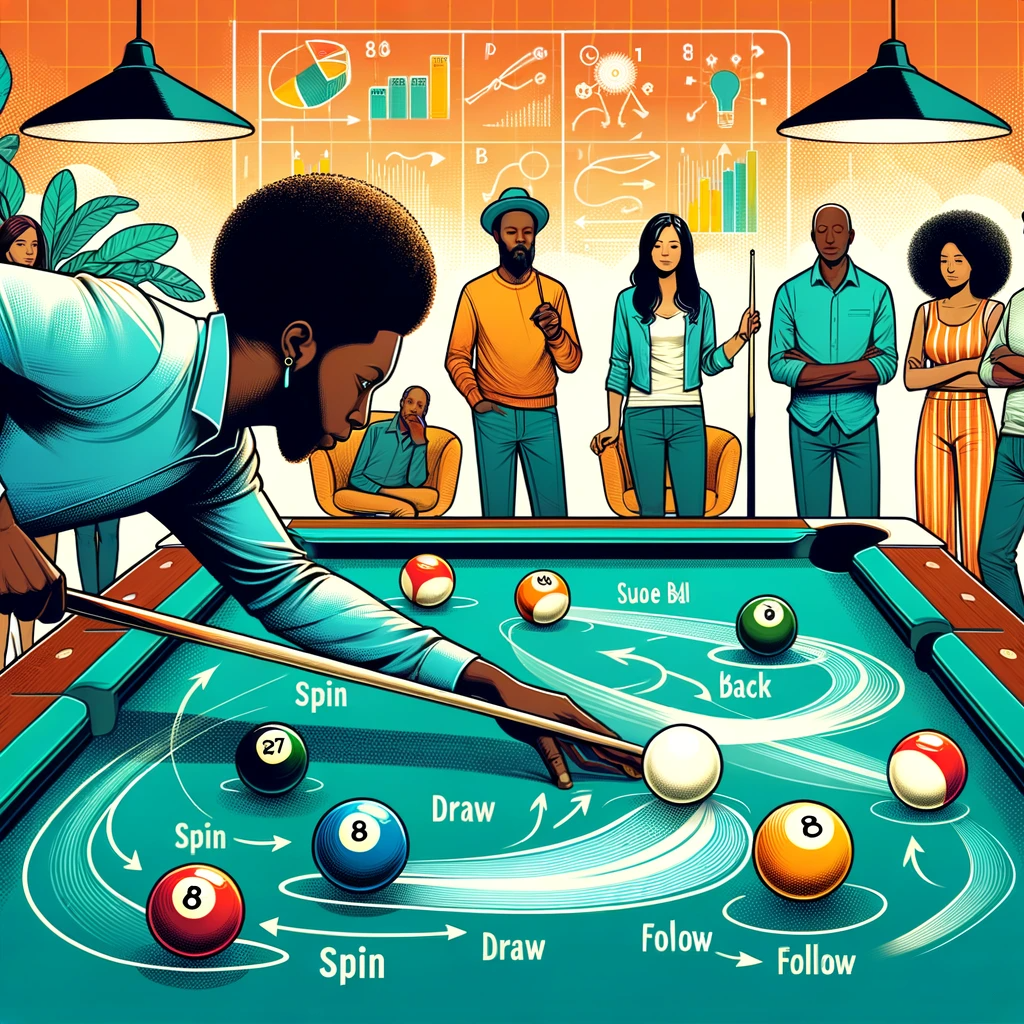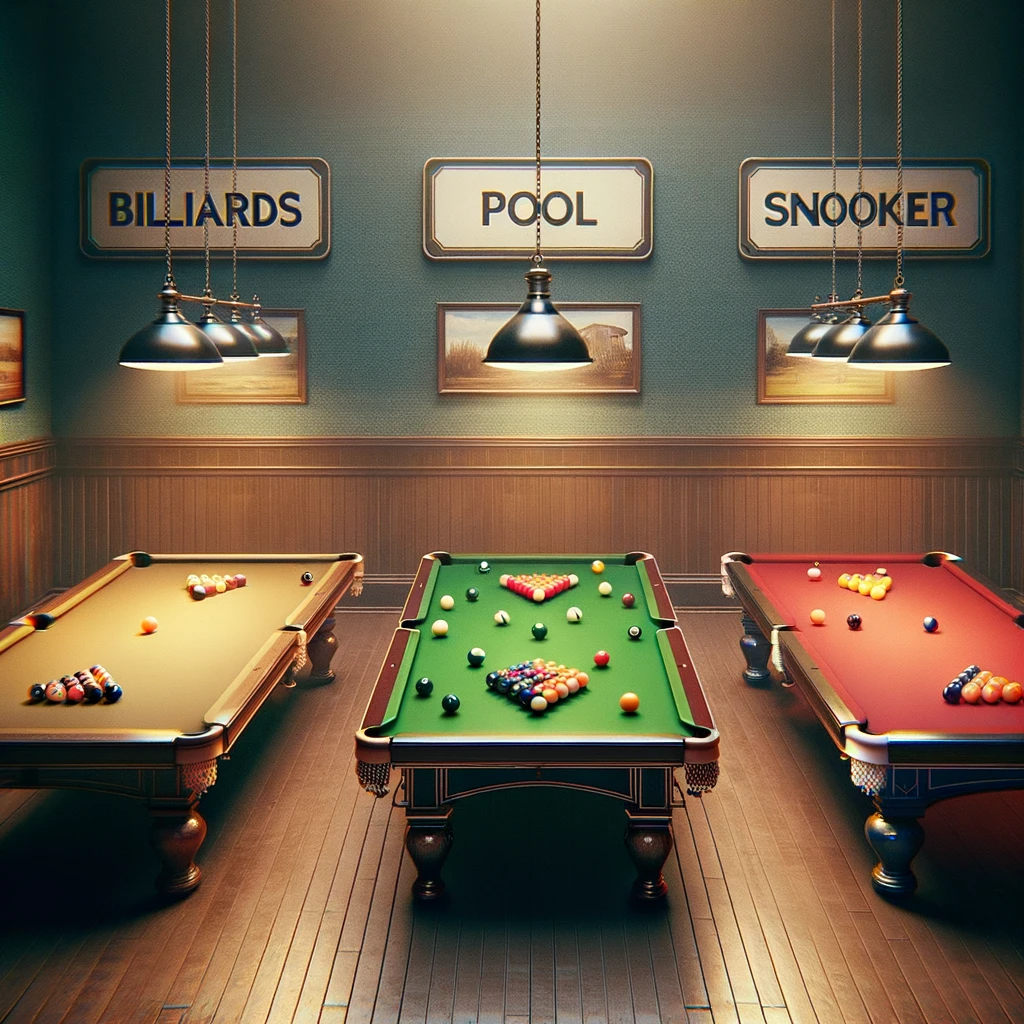Introduction
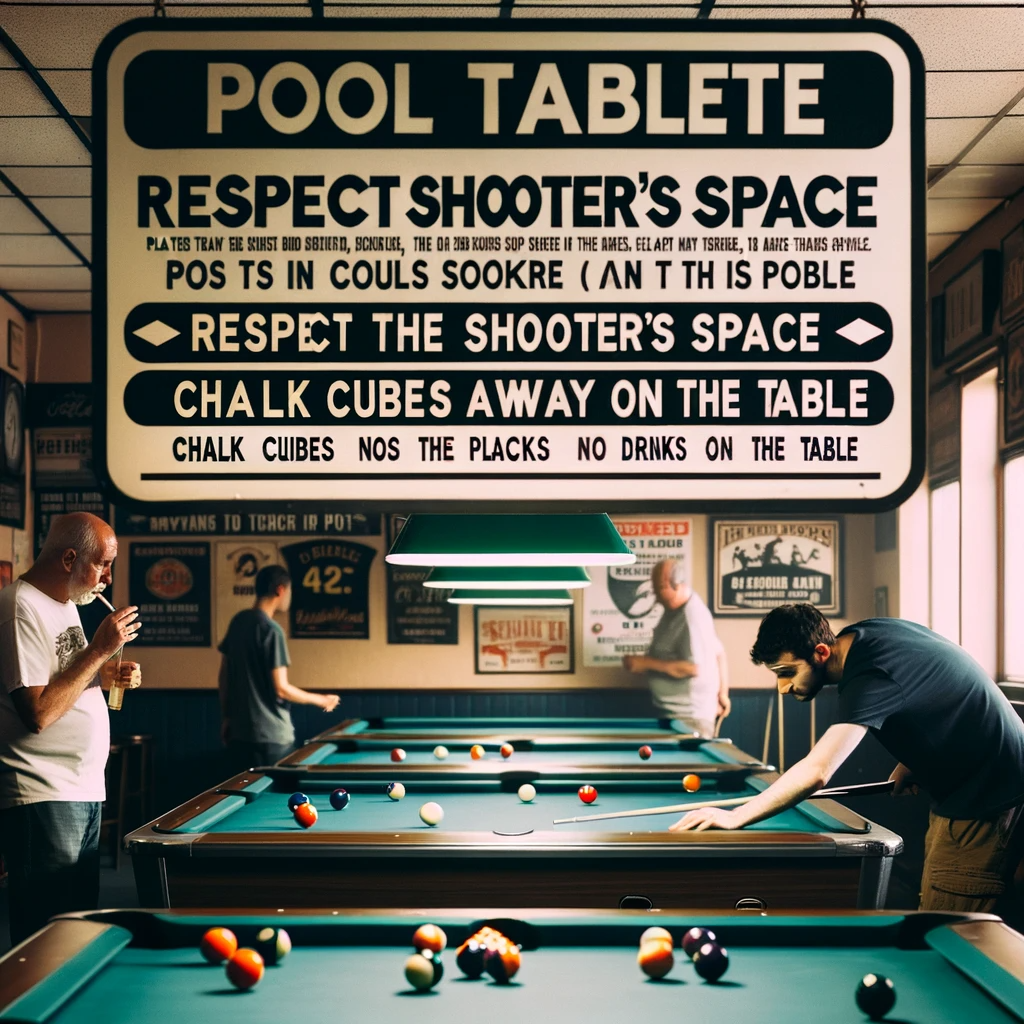
Pool table etiquette is a set of unwritten rules and guidelines that govern player behavior and conduct during a game of pool. Observing proper etiquette while playing pool is crucial for creating a respectful and enjoyable environment for all players involved.
The Definition of Pool Table Etiquette
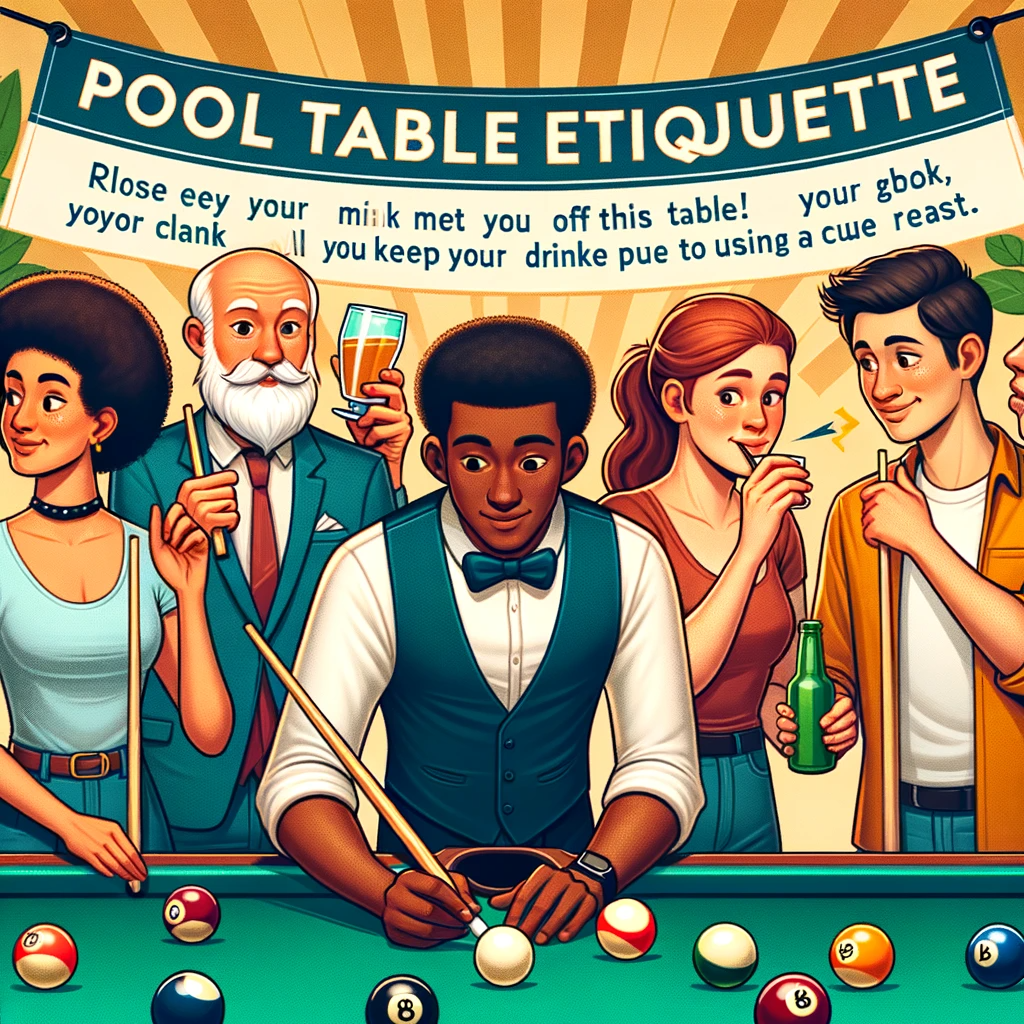
The definition of pool table etiquette refers to the code of conduct that players should follow while engaging in a game of pool. It includes guidelines on how to handle oneself, treat fellow players, and respect the game and its equipment.
The Importance of Observing Proper Etiquette While Playing Pool

Observing proper etiquette is vital because it promotes fairness, sportsmanship, and creates a positive atmosphere for all participants. It helps ensure that each player has an equal opportunity to perform their best during the game without any unnecessary distractions or disruptions.
Moreover, adhering to pool table etiquette shows respect for the game itself as well as the equipment used. By treating the table carefully and using cues appropriately, players contribute to maintaining the integrity and longevity of both.
General Etiquette Guidelines
Respect for the game and equipment
Players must avoid leaning on the table or placing drinks on it, preventing any damage to the playing surface. Leaning or applying excessive pressure on the table can affect its alignment and disrupt the fair gameplay for others. It is vital to handle cues with care, as they are delicate instruments.
Forceful hitting of balls may cause damage to both the equipment and the cloth covering of the table, leading to an uneven playing surface. By exercising caution and precision in handling cues, players can maintain a smooth and consistent game experience for themselves and others.
Sportsmanship and fair play
A crucial aspect of pool table etiquette is demonstrating good sportsmanship throughout the game. Players should begin by shaking hands before each match as a sign of respect towards their opponent. This simple gesture sets a positive tone for the friendly competition that follows.
Moreover, players must embrace both victories and defeats gracefully without displaying arrogance or frustration. Accepting triumphs humbly allows players to maintain a respectful environment while acknowledging that skill levels may vary between opponents.
Similarly, accepting defeats without complaint or excuses shows maturity and respect for fair competition, fostering goodwill among players. By adhering to these general etiquette guidelines, players create an atmosphere of mutual respect, enhancing their enjoyment of the game while promoting camaraderie among competitors.
Pre-Game Etiquette
Properly racking the balls
Players should ensure a tight rack formation for fair breaks. They must carefully arrange the 15 balls in a triangle shape, with the front ball on the foot spot, and tightly packed without gaps or spaces between them. A proper rack allows for an even distribution of energy when the cue ball strikes, leading to a more balanced break.
It is crucial to avoid purposely manipulating the rack to gain an advantage, such as leaving gaps or intentionally positioning certain balls to create clusters or obstruct opponent’s shots. Fairness and integrity are paramount during this initial stage of the game.
Establishing turn order
To determine who breaks first, players can reach a mutual agreement or resort to a coin toss. This ensures that no player has an unfair advantage by consistently breaking first in every game.
After deciding who breaks initially, players should follow a rotation system throughout subsequent turns. In this system, the winner of each previous game continues breaking in subsequent games until someone else wins and takes over as the breaker.
Following a rotation system ensures equal opportunities for all players and maintains fairness in determining turn order throughout multiple games. Overall, observing pre-game etiquette by properly racking the balls and establishing turn order fairly sets the tone for respectful competition and enhances everyone’s enjoyment of the game by ensuring equal opportunities for success.
During-Game Etiquette Respecting your opponent’s turn:
Maintain silence while your opponent is shooting. Avoid distracting movements or gestures that may disrupt their concentration.
By observing this etiquette, you create a conducive and respectful playing environment. It allows your opponent to focus on their shot without unnecessary distractions, ensuring fair gameplay.
Knowing when to concede a foul or miss: Admitting fouls, such as touching balls accidentally or not hitting any ball during a shot, demonstrates sportsmanship and integrity.
When you commit a foul, it is essential to acknowledge it immediately and inform your opponent. This honesty fosters trust and fairness in the game.
Similarly, communicating misses honestly without trying to deceive your opponent is crucial for maintaining the integrity of the game. By admitting when you miss a shot, without attempting to manipulate the truth or deceive your opponent, you uphold the spirit of friendly competition.
Respecting these aspects of during-game etiquette enhances the overall experience for both players involved. It promotes fair play and good sportsmanship while creating an atmosphere of respect and camaraderie on the pool table.
Special Situations in Pool Table Etiquette
Dealing with disagreements or disputes
Resolving conflicts calmly through respectful communication is essential in maintaining a harmonious game of pool. Address any disagreements or disputes that arise by expressing your concerns respectfully and listening actively to the other party.
Avoid getting defensive or aggressive, as this can escalate the situation further. Openly discuss the issue at hand, ensuring that both sides have an opportunity to express their perspectives.
Considering calling for an impartial referee if needed
In some cases, when disagreements cannot be resolved between players, it may be necessary to call for an impartial referee. An impartial referee can provide unbiased judgment and help mediate any ongoing disputes.
If you feel that a situation requires outside intervention, suggest involving a referee who can objectively assess the circumstances and make fair decisions. Remember to approach this as a last resort and do so in a respectful manner to maintain the integrity of the game.
Handling distractions in the playing area
Addressing distractions in the playing area promptly ensures that all players can focus on their game without unnecessary interruptions. Politely but firmly request individuals who are causing distractions, such as noisy spectators or disruptive behavior from other players nearby, to minimize their impact on your concentration. Maintaining assertiveness while being considerate will help navigate these situations smoothly and allow everyone involved to enjoy the game.
Conclusion
Pool table etiquette plays a vital role in fostering an enjoyable atmosphere while playing this popular game. By adhering to proper etiquette guidelines, such as respecting opponents’ turns, resolving conflicts calmly through communication, considering referees when necessary, and handling distractions appropriately – we ensure fair play and sportsmanship prevail throughout each match.
Embracing these principles not only enhances our own gameplay experience but also contributes positively to the broader pool community’s spirit of camaraderie. So, let’s embrace the etiquette, enjoy the game, and create memorable moments on the pool table!


